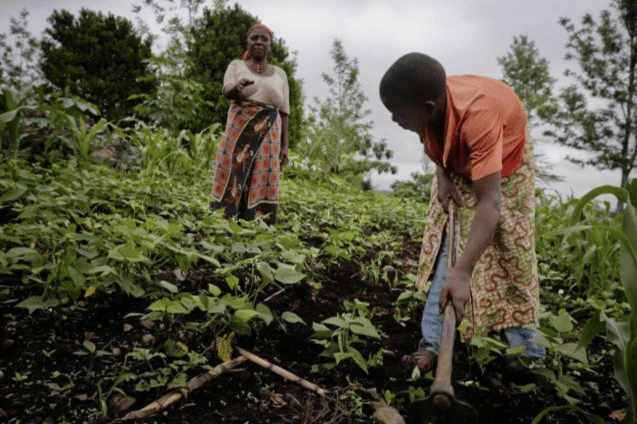President Obama’s appointment of Gayle Smith to head the United States Agency for International Development is a chance for USAID to take a fresh look at rural development strategies.
USAID needs to change direction away from initiatives taken by its former Administrator Rajiv Shah, which put the interests of private investors over the kind of public investment that can ensure food security in countries where agricultural development has been neglected.
Working closely with agribusinesses active in the World Economic Forum, Shah put together the G8 New Alliance with the purpose of creating a big new announcement for President Obama at the 2012 G8 summit at Camp David.
The New Alliance consists of agreements in which 10 African governments promised to make policy changes demanded by agribusiness corporations regarding land, seeds and taxes in exchange for G8 countries continuing their aid programs, albeit with lower pledges. Agribusiness companies benefiting from these changes were encouraged to submit non-binding “letters of intent” about their investment plans, which have never been fully released to the public. One USAID staffer described to me “a scramble” to get a sufficient number of investors to submit letters before the G8 summit, because even though numerous companies stood to benefit from policy changes, they were free to decide not to share information about their plans.
The scramble to put together the New Alliance meant that the USAID leadership ignored warnings from its own experts. For example, the New Alliance agreement for Tanzania, praised the plan for Tanzania’s Southern Agricultural Growth Corridor as a “showcase for public-private partnership,” even though a USAID report written a month earlier by a land tenure expert stated that the corridor will:
lead to displacement of villagers, loss of grazing rights, migratory corridors and water sources for pastoralists, and risks igniting land-based conflict.
While the USAID report was circulated to donor governments, it was never published by USAID, but we obtained it from civil society in Tanzania, and it can be viewed here.
This was not the only US expert to issue a warning in Tanzania, however USAID waited until well after the New Alliance announcement to quietly publish its Environmental Threats and Opportunities Assessment for Tanzania which argued that the New Alliance supported growth corridor was a high risk project:
“The development of larger agricultural enterprises on the highest potential land for irrigation may push smallholder farmers onto marginal uplands, causing further forest loss and degradation in upstream watersheds.”
Though many companies benefiting from New Alliance land policies and other agribusiness incentives are not formally part of the New Alliance, letters of intent were accepted from a number of land grabbing companies.
In Tanzania, the New Alliance agreement facilitated by USAID included a project by the company EcoEnergy, which is attempting to take land from communities to set up a sugar plantation larger than the size of Washington, D.C.. in Tanzania to export biofuel to Europe. In Nigeria, the New Alliance includes American company Dominion Farms, which had already been accused of grabbing land in Kenya.
USAID’s role in facilitating land grabbing has not been limited to Africa. In post-earthquake Haiti, much of USAID relief money was diverted to a boondoggle of an industrial park which was set up for an investor exporting clothing to the US. Rather than setting up the industrial park on urban land close to where earthquake victims needed new housing and jobs. USAID approved the project on prime agricultural land which is scarce in Haiti, displacing hundreds of food-producing small farmers without proper consultation, notice or adequate compensation.
At ActionAid USA, we believe that a change in Administrator is a chance for a change of direction at USAID. Gayle Smith has a long history of working in Africa in a variety of capacities. She has an understanding of the importance of dialogue and the need for government to be responsive to civil society.
As President Obama’s advisor on Global Development, Smith invited ActionAid to the meet with her to discuss the EcoEnergy land-grab case and the New Alliance. As USAID Administrator, we know that Gayle Smith has the both the information and the power to change things. As members of civil society we want to see change happen.



